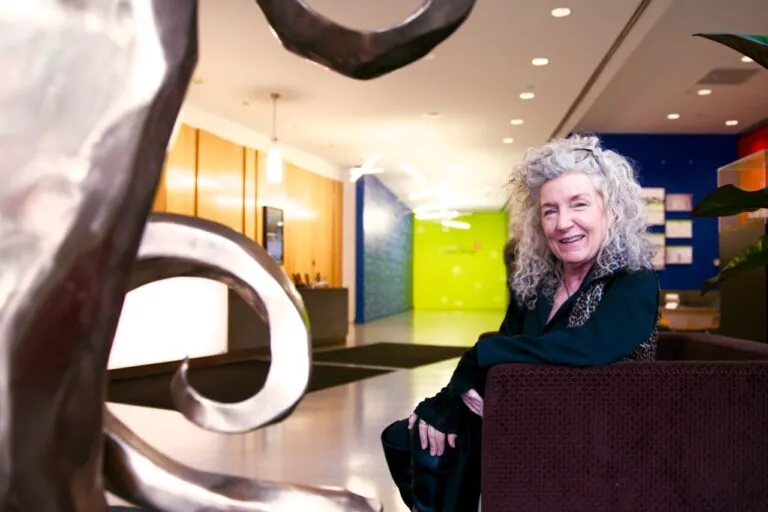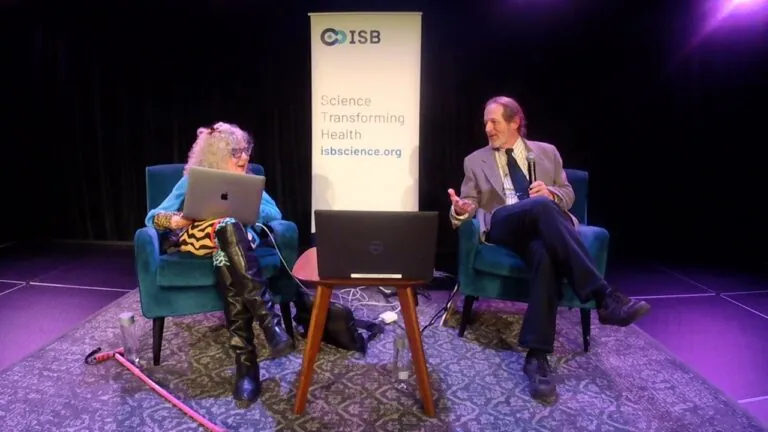
Scientists Decode Diet From Stool DNA – No Questions Asked
ISB’s Gibbons Lab developed a breakthrough method that analyzes food-derived DNA in fecal metagenomes, allowing for data-driven diet tracking without the need for burdensome questionnaires.

ISB’s Gibbons Lab developed a breakthrough method that analyzes food-derived DNA in fecal metagenomes, allowing for data-driven diet tracking without the need for burdensome questionnaires.

We are deeply saddened to share the passing of renowned artist Ginny Ruffner earlier this year at 72. Ginny has long been an integral part of ISB’s community. Her vibrant artwork continues to bring life to our spaces, and her advocacy as a Foundation Board member leaves a lasting legacy.

In a just-published paper in the journal Nature, a collaborative team of researchers from ISB, UCLA, PACT Pharma, and beyond analyzed T-cell responses in melanoma patients who were treated with different immune checkpoint inhibitors, and how those responses evolved over time.

Bacteria are much more than single-celled organisms swimming around. Bacteria also form communities called biofilm, and work together to maintain the microbial community. Biofilm is just one research area of ISB’s Kuchina Lab. In this Research Roundtable presentation, ISB Assistant Professor Dr. Anna Kuchina details her work studying biofilms.

Renowned artist Ginny Ruffner and ISB President Dr. Jim Heath delivered a lecture at Town Hall Seattle about the intersection of art and science. They spoke about how creation stories tie scientists and artists together, and how their approaches are both similar and different from that point on.

Gibbons – an expert in microbial ecology and evolution, computational systems biology, the human gut microbiome and its impacts on health, and head of ISB’s Gibbons Lab – has been promoted to Associate Professor.

Sara Calder recently joined ISB as Systems Health and STEM Coordinator, and is our second-ever AmeriCorps member. In this Q&A, Calder shares her education journey, her future plans, and much more.

Scientists for the first time have used CRISPR to substitute a gene to treat patients with cancer. The remarkable findings were published in the journal Nature and presented at the Society for Immunotherapy of Cancer (SITC) 2022.